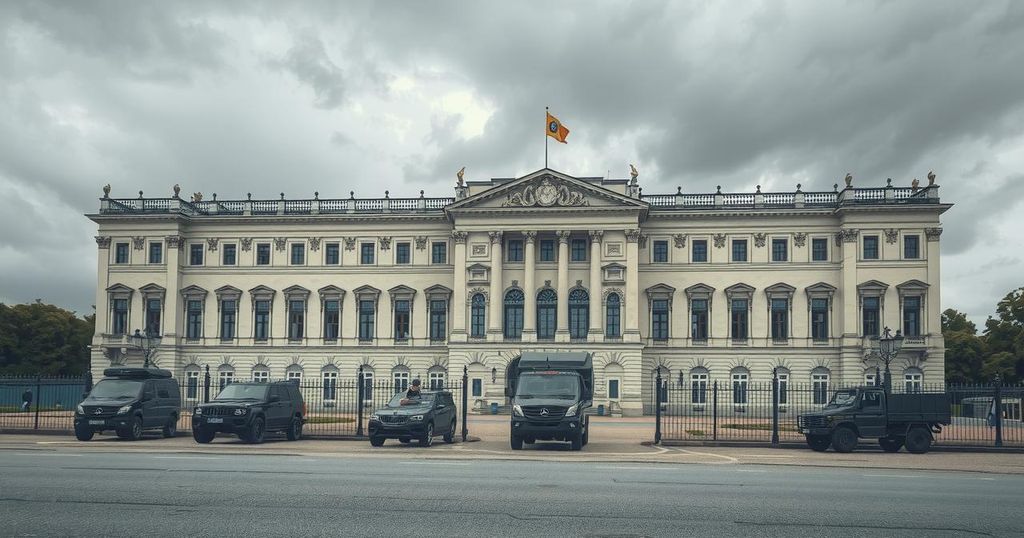Sudan’s army has regained control of the presidential palace in Khartoum from the RSF after two years. While the army captures the palace and central ministries, escalating violence persists, with drone strikes resulting in journalist fatalities. The conflict has displaced over 10 million people and raised fears of a divided Sudan.
Sudan’s army has regained full control of the presidential palace in Khartoum, after it was seized by the Rapid Support Forces (RSF) two years ago. The army-aligned government announced this significant capture after closing in on the palace in recent days. Khaled al-Aiser, the information minister, confirmed the palace’s recapture on social media, stating, “Today the flag is raised, the palace is back and the journey continues until victory is complete.”
The RSF initially took control of the palace and large areas of Khartoum in April 2023, instigating a war with the Sudanese army that forced the government to relocate to Port Sudan. The palace complex, which features both the historic Ottoman-Egyptian building established in 1825 and a larger structure built in 2015, is of significant historical importance. The older building is particularly well-known for the death of British major-general Charles Gordon in 1885, an event that marked the end of Ottoman-Egyptian control in Sudan.
As reported by the army, they also seized control of several ministries and key sites in central Khartoum following the recapture of the palace. However, during this crucial moment, an unnamed army source indicated that an RSF drone strike on the palace resulted in the death of three journalists, prompting the RSF to announce that the conflict was far from over.
While the Sudanese army has been making strides in reclaiming territory from the RSF in central Sudan, the paramilitary force has solidified its control in Darfur, where grave accusations of genocide against non-Arab groups have persisted. A report from the Raoul Wallenberg Centre highlighted ongoing genocidal acts in the region under the RSF’s influence.
International bodies, including the United States, have levied sanctions against RSF leader Mohamed Hamdan Dagalo and army chief Abdel Fattah al-Burhan due to allegations of genocide. Adding to the complexity, RSF leaders recently announced a parallel government in Kenya, rumored to have support from the United Arab Emirates, raising concerns about a division within Sudan reminiscent of the instability seen in Libya. The conflict has displaced over 10 million individuals and left more than 12 million facing acute food insecurity, with thousands having lost their lives.
The recapture of the presidential palace by Sudan’s army marks a critical point in a two-year conflict with the RSF. As the army gains control over central Khartoum, the ongoing violence, including drone strikes on journalists, continues to underscore the fragility of the situation. Furthermore, the RSF’s consolidation of power in Darfur and its pursuit of a parallel government raises concerns of potential fragmentation in Sudan. Overall, the humanitarian impact remains severe, with millions displaced and food insecurity on the rise.
Original Source: www.middleeasteye.net






